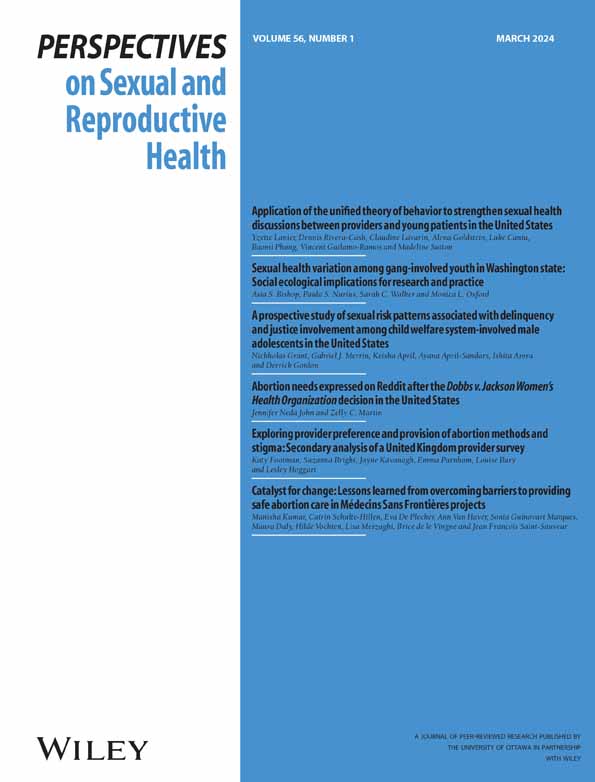COVID-19与美国移民获得性健康和生殖健康服务的机会
IF 3.4
2区 医学
Q1 DEMOGRAPHY
Perspectives on Sexual and Reproductive Health
Pub Date : 2020-07-01
Epub Date: 2020-07-15
DOI:10.1363/psrh.12150
引用次数: 26
摘要
本文章由计算机程序翻译,如有差异,请以英文原文为准。
COVID-19 and Immigrants' Access to Sexual and Reproductive Health Services in the United States.
In recent months, some of the impacts of the coronavirus disease 2019 (COVID-19) on sexual and reproductive health (SRH) care needs, decisions and access across the globe have become evident.1,2 In the United States, the Trump administration has unjustly blamed migrants for the COVID-19 pandemic, exploiting this public health crisis to further its long-standing xenophobic agenda and prompting a de facto shutdown of the U.S. immigration system. Yet immigrant communities—particularly those of color—are among the hardest hit by this virus, largely as a result of intersecting inequities based on migration status, race and socioeconomic position, all of which contribute to unequal access to quality health care.3 The perilous health impact of COVID-19 on immigrants in the country has been highlighted by the fact that Latinx individuals, one-third of whom are immigrants,4 are becoming infected and hospitalized at substantially higher rates than are U.S.-born white individuals.5 Noticeably absent from the public discussion is an intersectional consideration of how the public health response to the pandemic may affect access to SRH care for immigrants in the United States. Immigrants represent 14% (44.4 million people) of the U.S. population and account for 17% of women of reproductive age and 23% of births.6 Although immigrants’ SRH is not currently well documented, many immigrant groups face intractable social, economic and political barriers to obtaining A cc ep te d A rti cl e
求助全文
通过发布文献求助,成功后即可免费获取论文全文。
去求助
来源期刊
CiteScore
5.10
自引率
3.40%
发文量
24
期刊介绍:
Perspectives on Sexual and Reproductive Health provides the latest peer-reviewed, policy-relevant research and analysis on sexual and reproductive health and rights in the United States and other developed countries. For more than four decades, Perspectives has offered unique insights into how reproductive health issues relate to one another; how they are affected by policies and programs; and their implications for individuals and societies. Published four times a year, Perspectives on Sexual and Reproductive Health includes original research, special reports and commentaries on the latest developments in the field of sexual and reproductive health, as well as staff-written summaries of recent findings in the field.

 求助内容:
求助内容: 应助结果提醒方式:
应助结果提醒方式:


